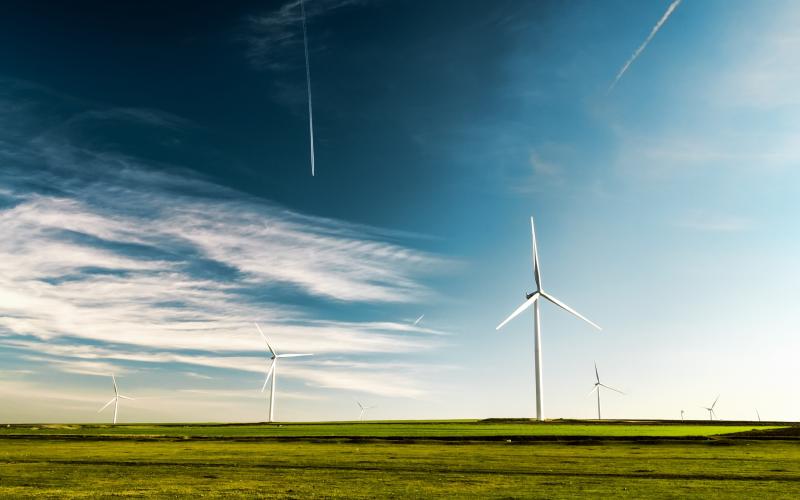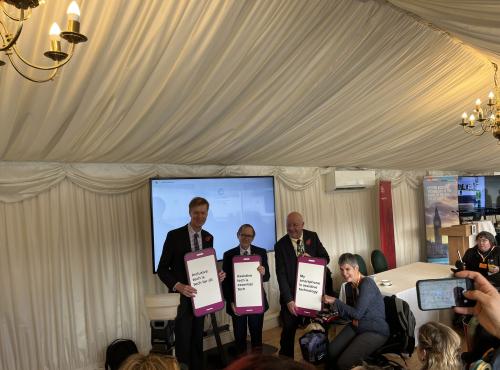Once the storm is over - how sustainable spending can look post covid-19
As the covid-19 shutdown weighs heavily on the global economy, comparisons are being made with the 2008 financial crisis. This comparison is helped by the familiar firefighting responses of central banks around the world.
But if the immediate response looks similar to 2008, the actual crisis is the polar opposite. The crisis of 2008 emerged in financial markets and cascaded into the real economy, this time around it is the real economy being deliberately shut down that is sending financial markets haywire. Monetary policy is therefore only able to play a calming role - it cannot fix the problem.
This difference can be seen in emerging fiscal responses. Whereas in 2008 fiscal policy, in as much as it was activated, was oriented towards economic stimulus – this time it is being used to ensure people can stay and home and businesses can shut down. This is crucial for slowing the disease and saving lives – rightly the number one focus for the coming weeks and months.
This ‘cocooning’ period of the economic response is as unprecedented as it is necessary. It also buys time to consider the shape of the economic stimulus that will surely be needed to kick start the post-crisis economy. In 2008 there were already voices arguing for ‘green’ stimulus packages. Although such calls were ignored last time, the motivating environmental concerns have only grown in the intervening decade, and the voices calling for action have grown with them.
Based on our research at Policy Connect, we have identified a number of areas that should be prioritised for investment in any upcoming stimulus package:
1- Low carbon heat and energy efficiency – improved energy efficiency in homes will help us decarbonise our heating system and lift people out of fuel poverty. Domestic heat accounts for 13% all the UK’s annual emissions. At the same time, 2.5 million people currently live in fuel poverty in the UK[1] and Age UK estimates cold homes cost the NHS around £1.36 billion a year in England alone[2]. Rapid installation of energy efficiency measures and low carbon heating solutions has huge potential social and health benefits – whilst also addressing a big chunk of the UKs carbon emissions. The Government is already due to consult on a new low carbon heat grant scheme. A covid-19 stimulus would be an opportunity to move faster and further on such initiatives.
2 - Carbon capture and storage (CCS) – CCS will be a vital piece of the puzzle for decarbonising heavy industry, producing low carbon hydrogen and decarbonising parts of the UKs energy supply. The UKs prime geological conditions also give us a natural advantage in this emerging sector. It’s been clear for some time that Government money is needed to kick start CCS in the UK and the budget included funding for ‘at least’ two CCS clusters by 2030. A stimulus package should include money to ramp this up to at least the 3 clusters by the mid-2020s, as recommended by the BEIS Select Committee and the Committee on Climate Change. This move would position the UK as a leader in this sector, provide jobs in regions across the UK and future proof our heavy industries in a zero carbon world.
3- Flood resilience - many businesses are still reeling from floods during the wettest February since records began. Even under normal conditions, 40% of businesses do not reopen after heavy flood damage[3]. The impact from the double blow of covid-19 and flooding on many businesses, especially SME’s, remains to be seen. As we emerge from this crisis, no business or household should be made to face such compounding shocks again. The £5.2 billion in this year’s budget for flood defences is welcome and will offer better protection to 336,000 homes and non-residential properties. However, more funds must be allocated for property flood resilience measures for homes and businesses.
Upfront investment
These areas are all essential for meeting our net zero commitment and future proofing our economy. Investment will provide high skilled jobs at a time they are desperately needed. Energy efficiency savings and flood resilience in particular will directly benefit people's lives, ensuring a clear material basis for public support around climate action.
Covid-19 is not the last shock that the UK will face as the climate crisis advances – and it’s clearly demonstrated that it is better to invest upfront than bear the costs of catastrophe later down the line. Let’s not squander this opportunity to create a stronger, greener and more resilient economy.
[1] Policy Connect. 2020. Uncomfortable home truths: why Britain urgently needs a low carbon heat strategy
[2] Age UK. 2012. The cost of cold
[3] Rainbow International. Online. Flooding statistics UK [accessed: 31.03.2020]




